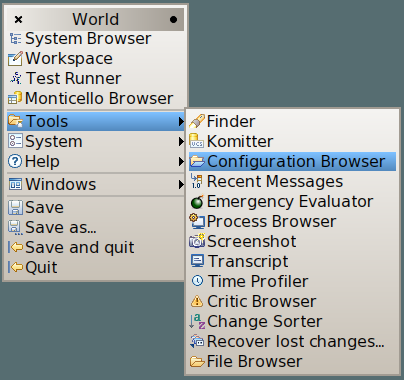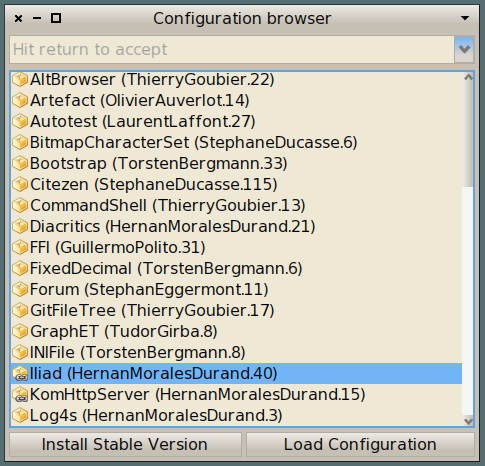This post introduces the Iliad Web Framework, which is a webapp framework that you can use with the Pharo Smalltalk implementation to create dynamic and fast websites.
I hope that you already used Pharo and the Smalltalk language but, if you are a real beginner, try these books before reading this post.
You will find that Smalltalk is a really enjoyable programming language and also worth learning because it changes the way you think about OOP.
How to get Pharo
Getting Pharo installed is really simple. Go to the Pharo website and download the latest release. I find the beta release (3.0) pretty solid and I advice you to download the latest installer.
“Installer” is a misnomer regarding Pharo as it’s sufficient to
download the zip file for your platform and uncompress in a folder to
get Pharo installed. When you have unzipped the contents of the Pharo
distribution you can execute the pharo script (or EXE file) in the
main directory.
How to load Iliad in your image
When you have started the Pharo GUI click on empty space on the screen and the “World” menu will appear:

from the menu choose “Tools” then “Configuration browser”. In the configuration browser window search “Iliad”:

now click on “Install Stable Version” and wait until the Iliad Framework get loaded. While you wait admire the “Metacello” project manager at work: it’s collecting all the needed packages, downloading from the Internet and compiling the code.
Congratulations! Now you are ready to develop with the Iliad framework.
How to start the embedded web server
Open a workspace from the “World Menu” and enter:
IliadKom startOn: 7070
select the code line and open the contextual menu right-clicking on the selected text. From the contextual menu choose “Do it”. Pharo doesn’t speek to much so you may think that nothing happened but you can open the “Browse” application that is embedded with the Iliad Framework pointing your browser here.
Ending
You loaded the Iliad web framework in your image and started the embedded web server. In the next post we will build a new web application.
The next article is here